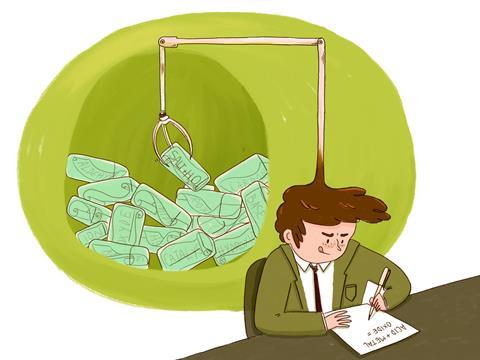How to start your lessons to aid recall
Information stored in long-term memory is vital for success in science – and not just in school. This information forms the building blocks of all our complex thought, creativity and critical reasoning: without it, our students cannot be the thinkers we would wish them to be.

Unfortunately, most students are unaware of effective study strategies, and choose to spend their time on ineffective practices like rereading or highlighting. Research has shown that, in opposition to these methods, active retrieval of previously learned knowledge is significantly more effective. Researchers term such activities as ‘retrieval practice’; essentially any time in which a student is having to actively recall information is retrieval practice. The easiest way to achieve this is a simple question. At the beginning of a lesson, instead of a teacher stating ‘Last lesson we learned how a salt and water are formed when metal oxides and acids react together’, they could write on the board:
acid + metal oxide → ______________ + _____________
And ask students to write an answer in their books, thereby ensuring that all students are performing retrieval practice.
7 simple rules to boost science teaching
Click to expand and explore the rules
Build on the ideas that pupils bring to lessons
Help pupils direct their own learning
Use models to support understanding
Support pupils to retain and retrieve knowledge
- Pay attention to cognitive load—structure tasks to limit the amount of new information pupils need to process
- Revisit knowledge after a gap to help pupils retain it in their long-term memory
- Provide opportunities for pupils to retrieve the knowledge that they have previously learnt
- Encourage pupils to elaborate on what they have learnt
Use practical work purposefully and as part of a learning sequence
Develop scientific vocabulary and support pupils to read and write about science
Use structured feedback to move on pupils’ thinking
Recalling information from long-term memory isn’t like opening a file on a computer, which has no effect on the file itself; only actively editing it changes it. But when we ‘open’ our memories, that very act strengthens them and protects them against the natural process of forgetting.
There is also evidence that retrieval practice can help protect students against the debilitating effects of anxiety (like in a high stakes exam) and that it helps students remember even things which were not directly tested. Our example would strengthen students’ memory of acid + metal oxide, as well as that of acid + metal carbonate.
Retrieval practice also provides fertile ground for new learning: it ‘activates’ old memories and allows new material to be understood more readily. We all learn new information by anchoring it to already-learned information. Retrieval practice can help trigger the memory into making these associative links.
When thinking about implementing retrieval practice in your classroom, consider:
- Keeping the stakes low.
- Ensuring that all students are actively engaged.
- How and when feedback will be given.
- Optimum spacing between learning and retrieving.
- Whether different topics will be mixed.
- How to support students in preparing for retrieval practice.
- How to respond to students who do not appear to be improving.
The research has much to say about these considerations, but in my opinion these are tweaks: ways to make retrieval practice better. The main thing is just to actually do retrieval practice: to get into a good routine with your classes of regular and frequent review.
To help with this, I built a simple program called the retrieval roulette. Working in Excel, it starts with a bank of pre-written questions. Each of these questions is numbered, and ordered according to how I’ll teach the various topics . At the beginning of the lesson I open the program, look at which question I am up to, and enter that question’s number into the spreadsheet. It automatically generates five random questions from the bank, up to and including the number that I put in. Students come in, open their books to the back and answer the questions in silence. When they are finished, we go over the questions, discuss corrections and feedback and move on. This simple routine means that in every single one of my lessons students have the opportunity to engage with what I consider to be perhaps the best researched memory technique in existence.
Download an example of retrieval roulette for use in your classroom: MS Excel
Download an example of retrieval roulette from the Education in Chemistry website: rsc.li/2E7uHhU
Further resources
More retrieval roulettes, including A-level chemistry, other sciences and subjects.
More retrieval roulettes, including A-level chemistry, other sciences and subjects: bit.ly/2TZwJpA
This article is part of the series 7 simple rules for science teaching, developed in response to the EEF’s Improving secondary science guidance. It supports rule 4c: Provide opportunities for pupils to retrieve knowledge they previously learned.
Downloads
Retrieval roulette
Excel, Size 0.17 mb















7 readers' comments